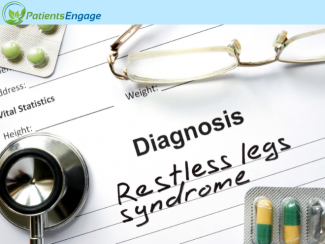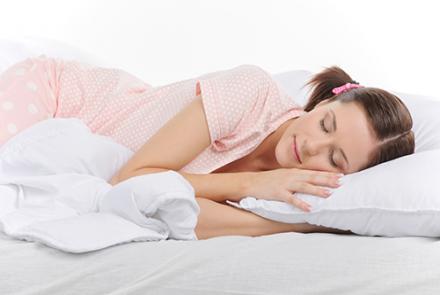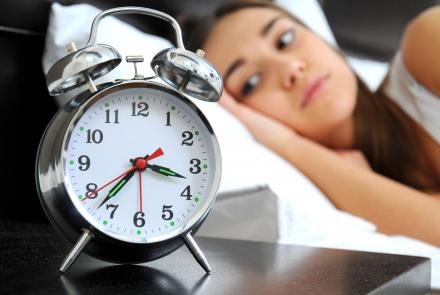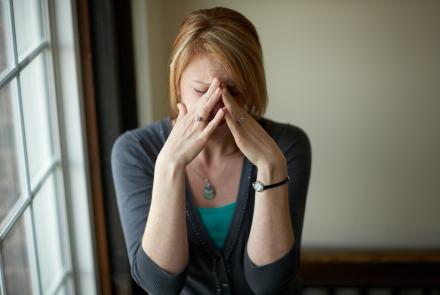
Dr.Rajalakshmi Iyer, Professor of Physical Medicine and Rehabilitation at All India Institute of Medical Sciences (AIIMS), Rishikesh cautions that Restless Leg Syndrome (RLS) can significantly impair quality of life and reduce productivity if good sleep hygiene practices are not followed and medications not taken.
Restless Leg Syndrome (RLS) is a type of sleep disorder. Could you tell us a little bit about it and who does it affect?
RLS is a medical disorder that is much commoner than previously thought. It is characterized by a strong urge to keep moving the legs, while lying down to sleep or after sitting for a long time, often due to uncomfortable sensations in the legs. The movement relieves the discomfort partially or fully. The problem only occurs or is worse in the evening or night and prevents falling asleep.
Not everything is known about its cause at present, but more and more research is being conducted in many labs around the world on this. Treatment guidelines have changed from old times with new light on this condition. It is now recommended that General Practitioners also be aware of this condition and its treatment.
What are the signs and symptoms of (RLS)?
The primary sign of RLS is a strong urge to keep moving the legs, due to disturbing sensations in the legs while at rest, or while lying down to sleep. These are uncomfortable enough to prevent sleep and the uncomfortable sensations are partially or fully relieved only by stretching or moving the legs, or getting up and walking around.
The sensations are different from muscle pain, cramps or joint pains, all of which are relieved by not moving the legs. They may sometimes occur during prolonged travel in a car or airplane, which involves sitting for a long period of time.
What causes restless leg while sleeping? Or what are the major triggers?
Since the exact cause of RLS is not yet known, many theories are proposed.
- There seems to be a genetic susceptibility to RLS. In many cases, a blood relative in the family also suffers from RLS.
- It has been found that RLS is associated with decreased iron stores in the brain. Hence, RLS is found in many patients with iron deficiency anemia, but RLS may be present even without the anemia.
- Another finding in RLS is that an area of the brain called the striatal pathway may become less active, leading to the reduction of a neurotransmitter called dopamine in the brain.
- RLS is found in many patients with renal failure, in liver failure and chronic lung or heart disease.
- It sometimes occurs in pregnancy.
- People living at high altitudes have been found to have RLS much more than people who live in the plains.
- All the above conditions suggest that chronic hypoxemia is one of the important factors in RLS.
In short, a genetic susceptibility triggered by an environmental factor seems to work together to cause RLS, as is seen in many other medical conditions as well.
How does RLS affect sleep?
RLS interferes with the process of falling asleep. More uncommonly, it can cause a person to wake up in the middle of the night with symptoms. The quality of sleep may be altered, with less of the deep, restful period of sleep (NREM sleep) resulting in the person waking up in the morning feeling tired and unrested.
In the long term, this can cause daytime fatigue or drowsiness, inability to concentrate, and can worsen other medical conditions. Thus RLS significantly reduces the quality of life and affects productivity.
The two most common sleep disorders are considered to be Obstructive sleep apnea (OSA) and insomnia. Is there any data available to determine extent of the prevalence of RLS in India?
While in many western studies, rates of between 5 and 10% have been found for restless legs syndrome, one Indian study by Rangarajan and colleagues from Bengaluru found a much lower rate of 2% in the south Indian urban population. But in people living at high altitudes in Uttarakhand, a study by Ravi Gupta et al found the prevalence to be much higher, at 12%. RLS and OSA (Obstructive Sleep Apnea) or other sleep disorders can be present together.
Related Reading: Management of Insomnia
What can happen in severe cases of RLS?
Moderate or Severe RLS can significantly reduce the quality of life of the person suffering with it. Poor quality and quantity of sleep results in daytime drowsiness, affecting concentration for tasks and work output. Lack of sleep can cause or worsen anxiety. Worsening of pre-existing medical conditions like obesity, diabetes, hypertension or depression are also seen.
What are few of the signs that people should be aware of about RLS?
Difficulty falling asleep or not getting a good night’s sleep can have many other causes. The commonest reasons are self induced, hence self awareness and practising good sleep hygiene can be all that is required. If the problem persists, medical attention can help with the right diagnosis and treatment. Some people develop a habit of continuously moving their feet or hands while awake, this is not RLS.
How is RLS managed or treated? Is there a permanent cure for RLS?
RLS can definitely be reduced and managed with various interventions.
Good sleep hygiene practices (See video link below) are the first step and are mandatory for all people, whether or not suffering from RLS. These include:
- avoidance of stimulant drinks (tea, coffee, alcohol) or nicotine near bedtime.
- avoiding stimulation from devices like television, mobile phones, laptops.
- avoiding heavy exercise or gymming in the late evening.
- having an early and light dinner.
- regular timing to sleep and wake up.
- avoidance of blue light from mobile phones, laptops and television,
- and most important, the will to make the changes.
Good sleep is the most underestimated and undervalued factor for good health.
For mild RLS, avoidance of caffeine or alcohol and late evening exercise 4 – 6 hours before sleep, along with sleep hygiene can be all that are required.
For more severe RLS, medications are available that can help relieve symptoms.
Your treating physician can request blood tests to look at the iron stores in your body, which will help in the diagnosis and treatment of RLS.
Which foods are good, and which are bad for RLS?
A small, light meal early in the night is good. This ensures that the stomach empty when we lie down to sleep. A lot of protein or fat in the dinner increases the time the food stays in the stomach. A full stomach, caffeine or alcohol at bedtime are to be avoided.
Is RLS a precursor to Parkinson’s?
No. RLS does not cause Parkinson’s disease. The brain neurotransmitter called dopamine is affected in both RLS and Parkinson’s disease. But not all RLS results in Parkinson’s disease, though the number of persons who do develop Parkinson’s eventually is higher among people with RLS, than in the general population.
It is said that putting a bar of soap under the pillow can ease RLS? Is it a myth or it has some scientific basis?
No clinical trials have been done to prove or disprove this, but aromatherapy may have subjective benefits in many persons, not specifically persons with RLS.
(Dr.Rajalakshmi Iyer is also Professor and Head, Dept of Medical Humanities, All India Institute of Medical Sciences (AIIMS) Rishikesh.
Acknowledgement : Dr Ravi Gupta, Professor and Head, Psychiatry and Sleep Medicine, AIIMS R and Dr. Vijay Krishnan, Associate Professor, Psychiatry, AIIMS R.)












